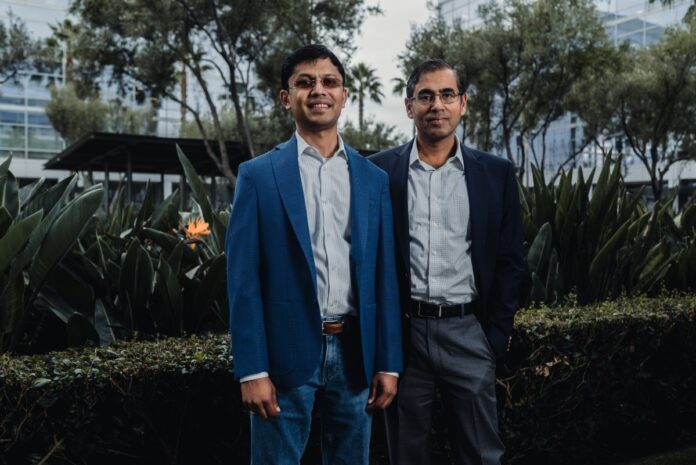Unlocking Team Connectivity: How Digital Twins Are Changing the Game
Have you ever been stuck waiting for a colleague’s response, just when you needed their input for a project? It’s frustrating, right? You’re not alone. Many people experience this hold-up daily. When someone with important knowledge is unavailable—like on vacation or in a different time zone—the rest of the team can find their progress slowed to a crawl. Fortunately, there’s an innovative solution in the works that promises to change all that.
Enter Viven: Your Digital Twin Awaits
Meet Viven, a groundbreaking startup launched by Ashutosh Garg and Varun Kacholia, the co-founders of Eightfold, a thriving AI recruitment company. Viven recently attracted attention after unveiling itself with a whopping $35 million in seed funding from big names like Khosla Ventures and Foundation Capital.
So, what exactly does Viven do? Imagine having your very own digital twin at work. This unique AI-powered tool is designed to access crucial information from your emails, Slack messages, and Google Docs. Essentially, your digital twin acts as a stand-in for you when you’re not around, allowing colleagues to ask questions and gain insights just as if they were interacting with you directly.
Ashutosh Garg describes it well: “When each and every person has a digital twin, you can just talk to their twin as if you’re talking to that person and get the response.” Quite cool, right?
The Technology Behind Digital Twins
But how does this digital twin thing work? Viven’s tech uses specialized large language models (LLMs), tailored for each individual in the company. It creates a digital reflection of employees, providing a layer of interactivity and information sharing that was previously unimaginable. No more waiting around for answers or feeling in the dark when your co-worker is out of reach.
However, creating such technology isn’t without challenges. One major concern is privacy. Employees often handle sensitive information that can’t just be thrown into a free-for-all system. They juggle personal details and confidential documents. This is where Viven steps up to the plate.
The Balance of Privacy and Sharing
Viven’s solution hinges on something called pairwise context and privacy. This idea allows their LLMs to discern which information can be shared and with whom. Imagine being able to have your colleagues ask your digital twin questions while knowing sensitive details remain off-limits. The system recognizes the context of your inquiries and can filter out those personal touches that shouldn’t be shared.
Additionally, transparency is key. Everyone can view the query history of their digital twin. This acts as a safeguard, making it less likely for someone to ask inappropriate or invasive questions. After all, nobody wants to be that person!
Real-World Applications
Already, Viven is being utilized by several enterprise clients, including Genpact and—of course—Eightfold. The co-founders divide their time between both companies, focusing on utilizing AI to bridge the gaps in communication and coordination.
As Ashutosh Garg points out, “It’s a very hard problem to solve, and until recently, it was unsolvable.” With Viven’s tools, teams can work together efficiently, even when they are miles apart. Garg believes that their unique technology is a game-changer, and he’s not alone in this belief.
Standing Out in a Rising Market
While Viven is set to revolutionize workplace interaction, it faces the challenge of competition. In a tech world filled with players like Anthropic, Google’s Gemini, and Microsoft Copilot, it’s clear that if these companies decide to create their versions, Viven needs to be prepared.
Yet Garg is confident in Viven’s differentiation. He recounts a pivotal moment when he reached out to investment titan Vinod Khosla to discuss the concept. Khosla encouraged him, confirming that no one else was pursuing the idea of digital twins for enterprise use.
Ashutosh Garg recognized that there’s a universal challenge in most jobs: communication and coordination. Most companies haven’t automated this yet. Once Viven can firmly establish itself in the market, it could become a go-to solution for teams, making their workplace experience smoother than ever before.
Implications for the Future of Work
The concept of digital twins isn’t just fascinating; it may well define the future of work. Imagine a world where waiting for a colleague’s input is obsolete. Or picture a workplace where information flows freely, barriers to communication are dismantled, and collaboration happens seamlessly—despite geographical distance.
This approach holds incredible potential, not only improving team productivity but also enhancing job satisfaction. If team members can tap into their digital twins at any time, they may feel supported and connected, even when physically apart. This could lead to a more engaged workforce, with employees feeling empowered and informed.
A Personal Reflection
Thinking about these developments really gets me excited about what’s to come. The ability to connect efficiently with colleagues from anywhere can spark innovation and enhance creativity in ways we can’t yet fully grasp. Imagine tackling challenges with a digital assistant that understands your company’s unique context and history.
This technology teaches us a valuable lesson: while we leverage tools like AI, we must prioritize privacy and respect for individuals. The balance of using powerful technology while ensuring personal boundaries is crucial. As we move forward, embracing these advancements responsibly can foster an environment of trust and collaboration.
In conclusion, Viven’s emergence shows us that while technology evolves rapidly, it’s the thoughtful application of this progress that truly enhances our work lives. By intertwining AI with human communication and information sharing, tools like Viven can pave the way to a more connected and effective workforce. So, as we wait for our colleagues to return from vacation, let’s look forward to a future that makes waiting a thing of the past!

